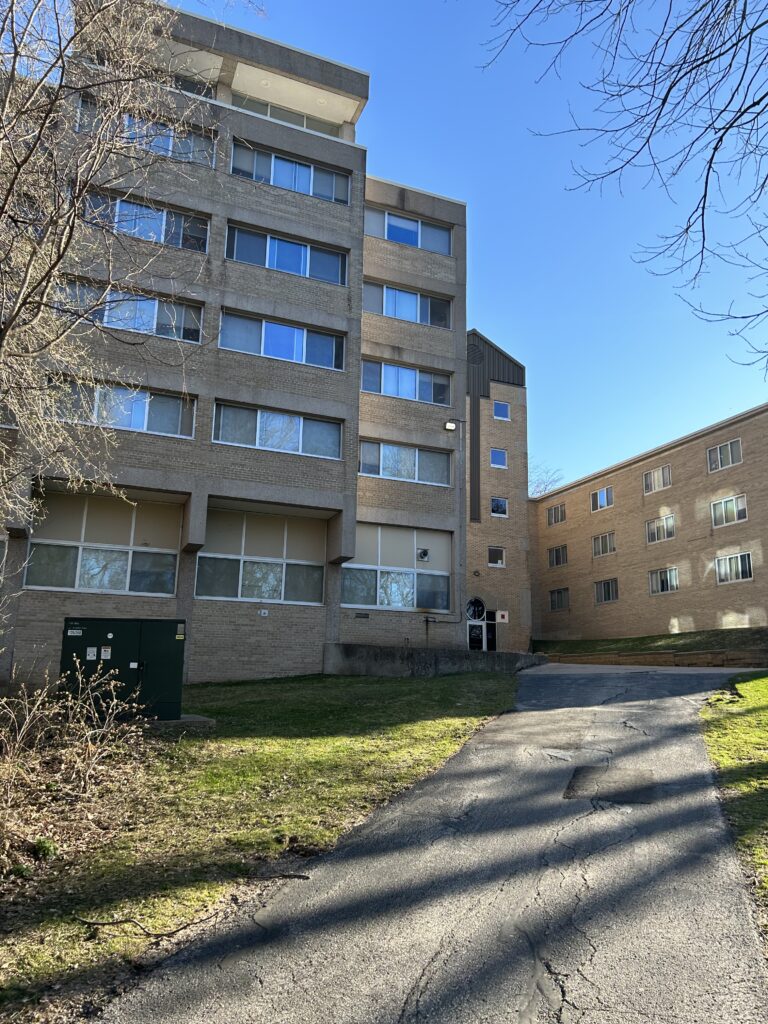By Mandy Barlow in Campus News, College Days on April 16, 2023
Students express their discontent with uncomfortable temperatures in Scott Hall and the lack of administrative action
As spring temperatures climb, Scott Hall residents at Ripon College are observing uncomfortably hot temperatures in their dorm rooms — yet administration is declining requests to turn off the heating system in the building.
In the second week of April, temperatures have consistently reached and surpassed 70 degrees and, on some occasions, have topped 80 degrees. Because of the heaters and the warm weather many dorm room temperatures have risen to roughly 85 degrees or higher depending on their location in the building. Consequently, many are wondering: why not turn off the heat?
According to Scott Hall Residence Director Courtney Bernd, who sent out an email addressing several heat-related complaints from Scott Hall residents, turning off the heating system in the building is not that simple.
Relaying information given to her by Director of Residence Life Mark Nicklaus and Physical Plant, Bernd said that they cannot turn off the heat until temperatures remain at a high enough temperature and do not reach a certain low for at least 10 days.
“Unfortunately, maintenance cannot just ‘turn off the heat,’ as it takes a bit of time for them to cool down and heat up. Next week Monday and Tuesday, the temperature will get down to 29-32 degrees at night, which is why we cannot turn off the heat just yet,” Bernd said in the email.
Students, however, are not necessarily believing or tolerating this narrative.

The view of Scott Hall from the walkway to the Quads from Upper Campus. Photo Courtesy of Mandy Barlow.
According to a College Days survey of about 50 residents in Scott Hall, 30 of the 35 that responded (85%) agreed that even with low temperatures reaching 29-32 degrees in the coming days, they would prefer to have the heat turned off.
“It is way too hot; I would rather freeze on the cold days than not be able to cool down at all,” said Ripon College sophomore Dana Huggett.
Megan Landvatter, also a sophomore, agreed. “Saturday night [April 8], I went home at 12:30 a.m. because it was too warm to sleep in my dorm, even with the windows open. They need to update the heating systems in all of the dorms. I’ve lived in Tri, Johnson, and Scott, and all of them have had heating problems,” she said.
Landvatter also said that she felt administration does not seem to care about the rough state of the dorm rooms, as the heating system is just one of the several issues they fail to address.
One student, who chose to remain anonymous, expressed concern for their emotional support animal.
“I have my emotional support animal with me on campus and they even keep getting overheated,” the student said.
According to some of the students surveyed, uncomfortable temperatures in Scott are not only a seasonal issue. If one were to walk around the exterior of Scott Hall, they would see several windows cracked or even wide open — regardless of the time of year.
“It is unimaginably hot even in the winter; some people even leave their windows open and fans on for the whole season,” sophomore Emily Byington said.
In previous communications with students, Nicklaus himself admitted that “the building retains heat a little too well”; however, as of press time, Nicklaus had not yet responded to requests to comment further.
Another problem revealed by senior chemistry major Brandon Lyle is that the heating system is not energy-efficient.
“With the number of windows opened even in the dead of winter, not just in Scott Hall but also in other campus buildings, it is obvious that heating systems campus-wide are overused and poorly designed,” Lyle said.
He added that this may have financial implications for the college.
“With all that wasted energy, I would venture to say that the college is losing thousands of dollars annually just from running the boilers when the systems could be much more efficient,” Lyle said. “It would probably be cheaper in the long run to address the heating now rather than ignoring it altogether.”
Regardless of its impact on the college, it is clear that the heating has caused significant frustration and dissatisfaction among Ripon College students. Some go as far as to say that the issue affects their education and mental well-being.
“I know I can speak for many students when I say that the poor quality of the dorms, namely the heating, is getting in the way of our comfort, sleep, and education,” Lyle said. “Is it fair to us that the College’s failure to adequately address students’ concerns about the dorms affects the education that we pay tens of thousands of dollars for?”


